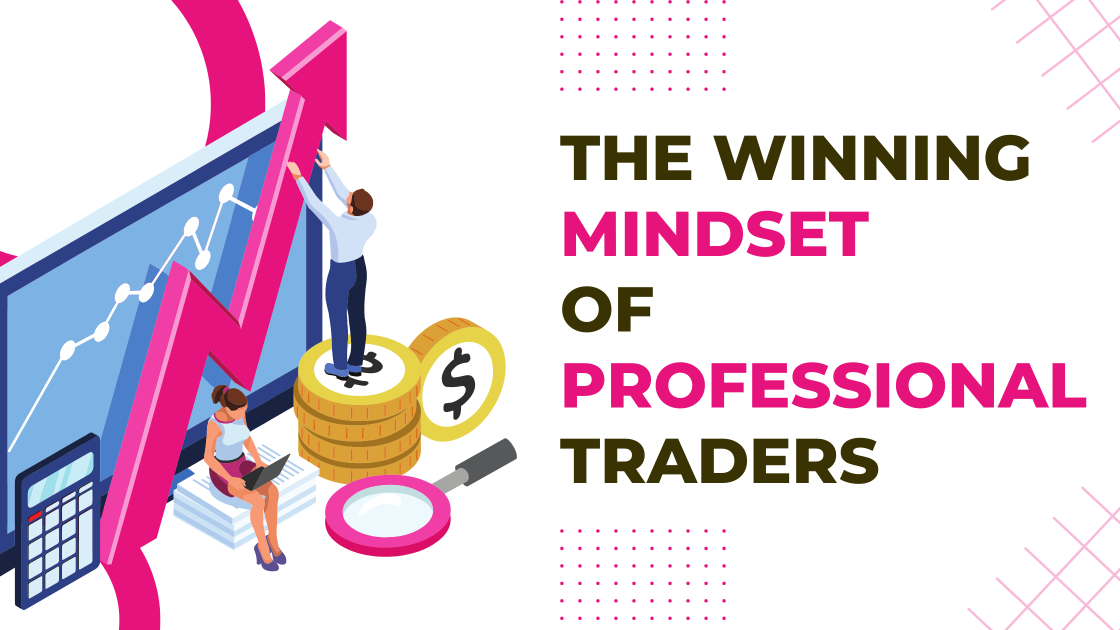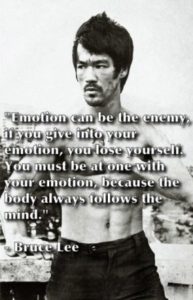 Have you ever wondered what sets professional traders apart from the rest? Is it their access to confidential information or their exclusive trading systems? You may have asked yourself these questions before, especially if you’ve been trading for a while and haven’t achieved the success you desire.
Have you ever wondered what sets professional traders apart from the rest? Is it their access to confidential information or their exclusive trading systems? You may have asked yourself these questions before, especially if you’ve been trading for a while and haven’t achieved the success you desire.
Instead of focusing on what professional traders have that you don’t, the better question to ask is how they think. The key factor that separates successful traders from the rest is their mindset. Your approach to trading is what determines whether you’ll become a consistently profitable trader.
In this article, we’ll take a deep dive into the mind of a successful trader. You’ll learn what kind of mindset is needed to thrive in the intense, psychological world of trading.
The market is not controlled by professional Traders, they control themselves
Professional traders do not force trades or chase after them. Instead, they wait for the market to present good opportunities that fit their criteria, and they take action accordingly. If no opportunities arise, they simply don’t trade.
Having mastered an effective trading strategy, professional traders know exactly what they’re looking for in the market. They are anticipatory rather than reactive, recognizing that trading is a game of anticipation, not reaction. They plan their trades well in advance, mark key levels, and patiently wait for obvious signals to form. This approach allows them to let signals “come to them” rather than forcing trades that aren’t there.
Professional traders understand that the market only provides a limited number of high-probability opportunities each month. As a result, they objectively scan the charts each day and become masters of their trading strategy. This approach creates a sense of calm and relaxation because they don’t feel the need to trade excessively.
Professional traders understand that emotions can impede their success
 Professional traders recognize that becoming too emotionally invested in their trades can quickly lead to failure. It’s natural to experience intense emotions when money is on the line, but professional traders make a conscious effort to manage their emotions to prevent significant losses.
Professional traders recognize that becoming too emotionally invested in their trades can quickly lead to failure. It’s natural to experience intense emotions when money is on the line, but professional traders make a conscious effort to manage their emotions to prevent significant losses.
The most effective strategy for keeping emotions in check is to understand your risk tolerance and never exceed it. You must place each trade with the knowledge that you could lose, and use this knowledge to adjust your risk to a dollar amount you’re comfortable potentially losing. It’s essential to determine the amount you’re emotionally okay with losing per trade and stick to it. Professional traders aim to minimize the emotional impact of winning or losing a trade by managing their per-trade risk effectively.
Professional traders act with confidence and conviction, avoiding second-guessing their decisions. They know precisely what they’re looking for in the market, and when they take a trade, it’s a decision they’ve anticipated and planned. They understand that their trading edge requires a series of trades to play out, and any series will contain a random distribution of winners and losers. To see the profitability of their trading edge, they must stick to it and allow it to work for them. Thus, professional traders measure trading success not only in terms of how much money they make but also in terms of executing their plan and sticking to their trading edge with discipline.
Professional traders do not undermine their own trading edge.
Struggling traders often behave in the market as if they are sure of what will happen next. They tend to over-manage their trades by frequently moving stops and targets, adjusting positions, and so on. This behavior reflects a false belief that they know for certain what the market will do next.
The reality is that no one can predict the market’s movements with certainty. While experienced traders can make informed guesses, they understand that the market’s behavior is unpredictable. Professional traders think about this regularly, while struggling traders ignore it.
Professional traders allow their trades to run their course without interference. They know that the market will fluctuate and move in various directions. They understand that the outcome of a trade is either successful or not, and in most cases, they will not touch an open trade as experience and screen time show that it does not improve the outcome.
There are some situations in which a trader may exit a trade early, but more than 70% of the time, most professional traders adopt a ‘set and forget’ approach and let the market do its work. This mindset is not mechanical but based on the understanding that letting open trades play with your mind and emotions and exiting before stops or targets are hit can have a detrimental impact on your long-term profitability and overall trading confidence.
Your approach to trading shapes your trading behavior
 The way you think about trading eventually translates into your trading behavior or habits. If you believe you can avoid losses, you will develop a tendency to trade without a stop loss, move your stop losses away, or add to losing trades. If you perceive the market as an ATM that caters to your every whim, you will trade excessively, over leverage your account, and eventually lose all your money.
The way you think about trading eventually translates into your trading behavior or habits. If you believe you can avoid losses, you will develop a tendency to trade without a stop loss, move your stop losses away, or add to losing trades. If you perceive the market as an ATM that caters to your every whim, you will trade excessively, over leverage your account, and eventually lose all your money.
In contrast, a professional trader regards the market with reverence. They acknowledge that they do not have all the answers and devote more thought to risk management than to profit. They approach trading by identifying clear opportunities and devising a plan of action in advance, thereby avoiding surprises. This mindset fosters healthy trading habits that translate into profitable trading decisions.
Professional traders demonstrate patience and foresight, anticipating trades and acting with confidence and composure. They manage their funds and remain unattached to the money or any particular trade. With screen time and actual market experience, your performance can improve over time, but only if you cultivate the thinking patterns outlined in this article.

